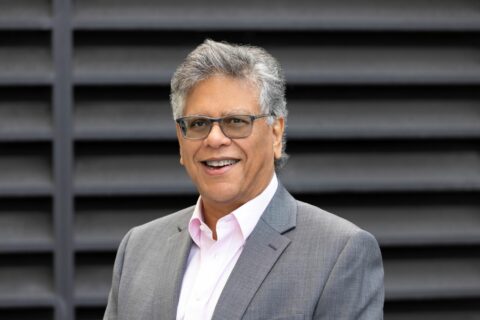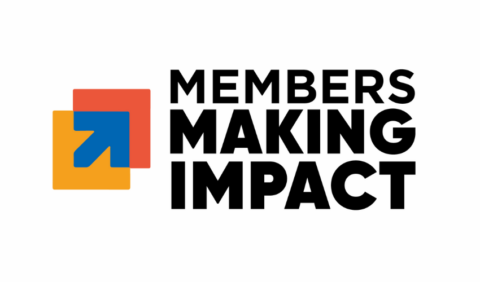
 FROM KAREN MURRELL, PROJECT MANAGER, ASSET FUNDERS NETWORK
FROM KAREN MURRELL, PROJECT MANAGER, ASSET FUNDERS NETWORK
AND ANGELINA SOLL, PROGRAM OFFICER, FOSTER YOUTH, CONRAD N. HILTON FOUNDATION
MAY 2025
AFN Short Take is a blog series highlighting insights and perspectives from recent AFN programming events.
A growing awareness of the connection between mental wellness and financial well-being is reshaping how we support young people. Here’s how philanthropy can help create the conditions youth need to thrive.
For today’s young people, mental wellness and financial well-being are not separate challenges—they are integrally connected. As young people navigate increasing stress, instability, and barriers to wealth-building opportunities, efforts to support financial capability must include healing and human connection. Otherwise, they risk reinforcing the very cycles they aim to break.
This was the central message of the May 13 virtual gathering hosted by Asset Funders Network (AFN) in partnership with Grantmakers In Health and the Aspen Institute Financial Security Program (Aspen FSP) and supported by the Annie E. Casey Foundation. The conversation marked the release of Unlocking Youth Potential, a new brief co-authored by AFN and Aspen FSP that includes a practical framework to support financial well-being by addressing the full context of young people’s lives, including their mental health.
Challenges Facing Today’s Youth
The data driving this conversation is as sobering as it is urgent. One in six U.S. youth has a mental health condition, yet only half receive treatment. Suicide is now the second leading cause of death for youth aged 10 to 14 and the third for those aged 15 to 24. Meanwhile, economic stress—housing insecurity, harmful debt, low-wage employment—is becoming normalized during a period of life that should be defined by possibility and growth.
“The majority of mental health conditions emerge during the same life stage when young people are building the skills and accessing the opportunities that shape their futures—especially their financial futures,” said panelist Jill Shumann, Vice President for Programming at Grantmakers In Health. “We know that 50% of all lifetime mental illness begins by age 14, and 75% by age 24. Today, one in six U.S. youth has a mental health condition, yet only half receive treatment.”
This developmental window is also shaped by stark structural inequities. Youth living in low-income households, youth of color, LGBTQ+ youth, youth with foster care experience, and those face additional trauma, bias, and barriers to opportunity. Without coordinated support, these young people are left to navigate adult responsibilities with few tools and little trust in the systems meant to help them.
Unlocking Youth Potential
The Unlocking Youth Potential report, released in tandem with the webinar, builds on insights from a 2023 brief developed in partnership with the Aspen FSP and a national Gen Z financial health survey conducted with Young Invincibles. In early 2024, AFN convened a funder-only roundtable series to explore how philanthropy can better support young adults. Across all four sessions, one theme stood out: mental wellness must be integrated with financial security strategies. The 2023 brief outlines four mutually reinforcing conditions that create the foundation for young people to thrive:
- Financial Stability – Reliable income, housing, savings, and access to benefits that reduce stress and enable future planning.
- Opportunity Pathways – Clear and supported routes to education, training, and careers that lead to long-term security.
- Financial Capability – The knowledge, tools, and support needed to navigate complex financial systems and decisions.
- Support and Guidance – Mentorship, mental health resources, and social capital that promote resilience and agency.
This isn’t just promising—it’s the path forward. Panelists emphasized that these conditions are not theoretical; they’re playing out daily in communities nationwide. From trauma-informed education models to peer-led financial mentoring, speakers shared how youth-serving organizations are already working to integrate emotional and economic well-being. Their approaches are grounded in trust, belonging, and the belief that when supported holistically, young people can stabilize and thrive.
From Ideas to Action: Voices from the Field
At Family Inc./Family Scholar House, Chief Learning Officer Kristie Adams described how their trauma-informed approach supports both the practical and emotional needs of young people who have experienced foster care, homelessness, or family instability. Many arrive with extremely high Adverse Childhood Experience (ACE) scores—9s and 10s out of 10. “How do you talk about budgeting or signing a lease,” Adams asked, “when someone’s still operating in fight-or-flight?” Rather than siloing services, Family Scholar House integrates mental wellness into every aspect of programming—from academic coaching to housing navigation—acknowledging that healing and financial progress must go hand in hand.
On the Cheyenne River Sioux Reservation, Wambli Gleska Quintana works with Native youth through the Cheyenne River Youth Project, leading a peer-based employment initiative that blends financial education with cultural identity and emotional connection. “We talk about money,” he explained, “but we also talk about who you are, where you come from, and what’s possible for your future.” For youth navigating both historical and present-day trauma, Wambli emphasized that financial empowerment starts with being seen and supported. “When you’re constantly in survival mode, it’s hard to dream big. We’re trying to change that.”
The conversation also emphasized the importance of recognizing trauma responses for what they are in how young people navigate help and opportunity. Behaviors like hyper-independence or distrust of authority are often protective strategies developed in response to systems that failed to deliver safety or support. When philanthropic and programmatic models acknowledge this reality and then center relationships, dignity, and autonomy, they create a trust that unlocks long-term progress.
Rather than expecting youth to be fully “independent” by 18, the conversation pointed toward a more honest and human standard: interdependence. No one thrives in isolation, and young people, like all of us, need a network of care. Philanthropy’s role is not to script the future for them, but to help build the village around them.
Philanthropy’s Role: Resourcing the Village
The Unlocking Youth Potential report calls on funders to treat mental health, financial security, and belonging not as separate priorities but as mutually reinforcing necessities. Specifically, this includes:
Fund Long Runways and Flexible Resources
- Support paid internships and extended career exploration programs so youth can take healthy risks without financial penalties.
- Provide flexible dollars to cover rent, transportation, or emergency needs—reducing stress and enabling program participation.
- Invest in embedded, youth-centered mental health supports that don’t rely on referrals or stigma-laden systems.
Center Youth in Design and Delivery
- Create space for young people to co-design solutions, not just provide feedback.
- Fund peer-led models and youth navigators who bring lived experience and credibility.
- Trust youth voice as expertise, especially in communities that have been historically excluded from decision-making.
Build Ecosystems of Support
- Break down silos between education, workforce, mental health, and financial capability programs.
- Invest in trusted, community-based organizations that know how to reach and support youth holistically.
- Use philanthropic leverage to advocate for public systems that are inclusive, trauma-informed, and accountable.
A Call to Action
The Unlocking Youth Potential report is both a guide and a challenge to be effective, responsive and holistic. It asks funders to look beyond well-meaning but fragmented approaches and to instead invest in the full conditions that allow young people to stabilize, dream, and thrive.
“The best thing you can fund is hope. Not just abstract hope, but hope that comes from healing, from being seen, from knowing someone believes in you. That’s what creates generational impact.” – Wambli Gleska Quintana


